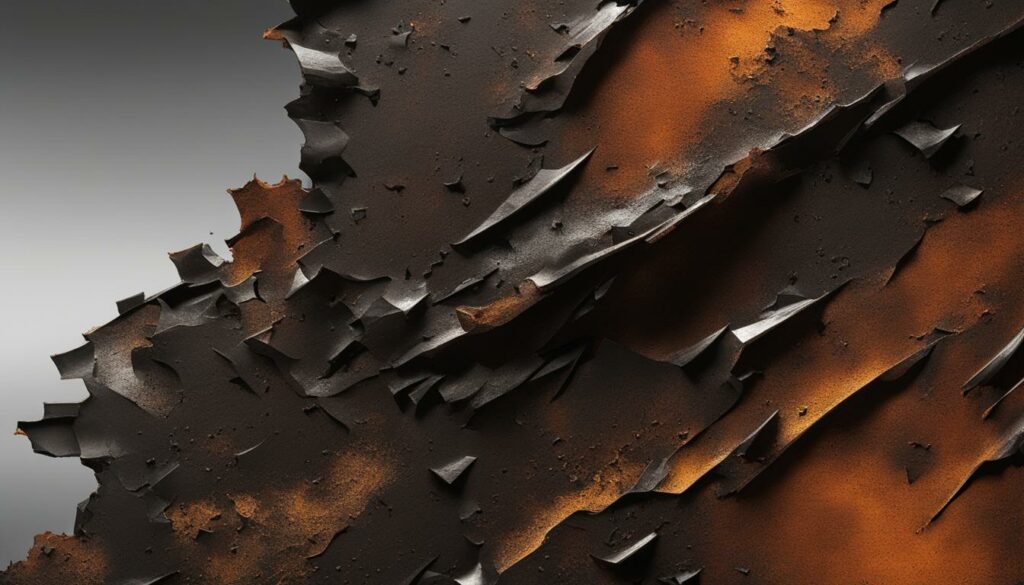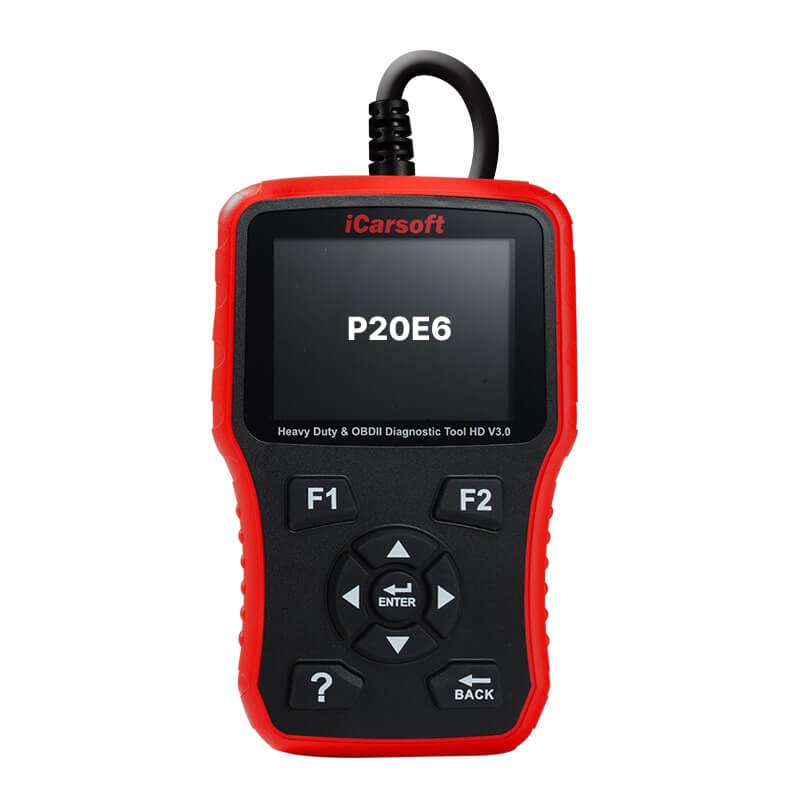P20E6 – SCR NOx Catalyst Conversion Efficiency Degraded
POSTED IN pcodes
Welcome to our article on the P20E6 error code, which indicates a degradation in the efficiency of the Selective Catalytic Reduction (SCR) system’s NOx catalyst. This error code is associated with the emission control system in diesel engines and specifically the NOx reduction technology. When this error code appears, it signifies that the SCR NOx catalyst is no longer performing optimally, resulting in increased emissions.
Understanding the implications of the P20E6 error code is crucial for vehicle owners and technicians alike. In this article, we will delve into the causes, symptoms, and potential solutions for addressing this catalyst degradation. By providing you with valuable insights, we aim to help you maintain the optimal performance of your vehicle’s emission control system and ensure compliance with environmental regulations.
Understanding SCR NOx Catalyst Efficiency
The SCR (Selective Catalytic Reduction) NOx catalyst plays a vital role in the emission control system of diesel engines. Its purpose is to reduce the levels of nitrogen oxides (NOx) emitted by converting them into harmless nitrogen and water vapor. The efficiency of the SCR NOx catalyst directly influences its ability to effectively convert NOx emissions.
When the efficiency of the SCR NOx catalyst is degraded, it becomes less effective in reducing emissions. This can result in increased levels of diesel engine emissions, particularly harmful NOx compounds. The degradation of catalyst efficiency is a significant concern for diesel emission control and the overall diesel exhaust treatment process. Emission reduction technology heavily relies on the proper functioning of the SCR NOx catalyst to minimize the environmental impact of diesel engine emissions.
Understanding the factors that affect SCR NOx catalyst efficiency is crucial in addressing emission control challenges and improving SCR system performance:
Buy tested tuning file for Adblue / EGR / DPF / Adblue off now!
- The quality of diesel exhaust treatment: The composition and quality of the diesel exhaust treatment fluids, such as diesel exhaust fluid (DEF), can impact the performance of the SCR NOx catalyst. Contaminants or impurities in the treatment fluids can lead to catalyst degradation and reduced efficiency.
- Maintenance and aging of the catalyst: Over time, the SCR NOx catalyst may age and deteriorate, resulting in decreased efficiency. Regular maintenance practices, such as inspecting and cleaning the catalyst, can help mitigate degradation and maintain optimal performance.
- Operating conditions and engine tuning: Various operating conditions, such as temperature, pressure, and engine tuning parameters, can affect the SCR NOx catalyst efficiency. Ensuring proper operating conditions and engine tuning is essential for optimal catalyst performance.
Quote: “The efficiency of the SCR NOx catalyst is crucial for effective diesel emission control and reducing the environmental impact of diesel engine emissions.”
The Importance of SCR NOx Catalyst Efficiency
The SCR NOx catalyst’s efficiency is directly linked to the reduction of harmful NOx emissions from diesel engines. Improved catalyst efficiency leads to better emission reduction performance, resulting in lower levels of air pollution and adherence to emission control regulations. Conversely, when the efficiency is compromised, diesel engines emit higher levels of pollutants, contributing to environmental degradation and potential health risks.
By addressing the factors that impact SCR NOx catalyst efficiency and implementing appropriate maintenance practices, diesel engine operators can enhance the performance of their emission reduction systems and minimize their ecological footprint. Ensuring the efficacy of the SCR NOx catalyst is crucial for achieving cleaner and greener diesel engine operations.
| Factors Affecting SCR NOx Catalyst Efficiency | Impact on Catalyst Efficiency |
|---|---|
| Diesel exhaust treatment quality | Can lead to catalyst degradation and reduced efficiency if contaminated or impure |
| Maintenance and aging | Aging or lack of maintenance can cause degradation and decreased efficiency over time |
| Operating conditions and engine tuning | Improper conditions or tuning can negatively affect catalyst performance and efficiency |
Understanding the P20E6 Error Code
The P20E6 error code specifically indicates that the conversion efficiency of the SCR NOx catalyst has degraded. This could be due to catalyst deterioration over time or various other factors. It is an important signal for vehicle owners and technicians to address as it directly affects the emissions performance of the vehicle. Ignoring the P20E6 code can lead to environmental non-compliance and potential damage to the engine.

When the P20E6 error code is triggered, it serves as a warning sign that the vehicle’s emission control technology, specifically the SCR NOx catalyst, is no longer functioning optimally. The catalyst’s conversion efficiency plays a crucial role in reducing harmful emissions from the vehicle’s exhaust gases, particularly nitrogen oxides (NOx).
Prolonged exposure to high levels of NOx emissions can have detrimental effects on the environment and human health. It can contribute to the formation of smog and acid rain, as well as respiratory problems such as asthma and other respiratory illnesses.
Addressing the P20E6 error code promptly is essential to maintain compliance with vehicle emission control regulations and ensure the vehicle is operating efficiently. Vehicle owners and technicians should take the necessary steps to diagnose and resolve the underlying issue causing the catalyst deterioration.
“Ignoring the P20E6 code can lead to environmental non-compliance and potential damage to the engine.”
To effectively address the P20E6 error code, it is recommended to consult with a qualified automotive technician or mechanic who has experience in vehicle emission control technology.
Some potential causes of catalyst deterioration that may trigger the P20E6 error code include:
- Aging of the SCR NOx catalyst over time
- Contamination of the catalyst with impurities
- Issues with the diesel exhaust fluid (DEF) system
Effects of Ignoring the P20E6 Error Code
Failure to address the P20E6 error code can lead to various negative consequences.
- Increased pollution: A degraded SCR NOx catalyst will result in higher emissions of harmful gases, including nitrogen oxides. This can contribute to air pollution and environmental damage.
- Environmental non-compliance: Continuously operating the vehicle with a degradation in the catalytic conversion efficiency can lead to non-compliance with emission standards and regulations. This can result in penalties and legal consequences.
- Potential engine damage: Ignoring the P20E6 error code may put additional stress on the engine, leading to potential damage. The degraded catalyst cannot effectively reduce emissions, which can adversely affect engine performance and longevity.
By addressing the P20E6 error code promptly and taking appropriate corrective measures, vehicle owners can ensure their vehicles remain in compliance with emission control standards while reducing the environmental impact of their diesel engines.
| Catalyst Deterioration Factors | Effects |
|---|---|
| Aging of the SCR NOx catalyst | Reduced conversion efficiency |
| Contamination of the catalyst with impurities | Impaired performance |
| Issues with the DEF system | Inadequate emission control |
Symptoms and Common Causes of P20E6
The P20E6 error code can manifest through various symptoms, indicating potential issues with the vehicle’s emission control system and catalyst deterioration. Identifying these symptoms and understanding the common causes can help diagnose the problem accurately and implement the necessary solutions.
Common Symptoms
- Illumination of the check engine light
- Potential performance issues such as reduced power or decreased fuel efficiency
When any of these symptoms occur, it is crucial to take prompt action to resolve the underlying problem and ensure the optimal performance of the vehicle’s emission control technology.
Common Causes
The degraded efficiency of the SCR NOx catalyst, leading to the P20E6 error code, can be attributed to several common causes:
- Aging of the SCR NOx Catalyst: Over time, the catalyst can deteriorate, affecting its ability to convert harmful emissions effectively.
- Contamination of the Catalyst: Impurities such as sulfur or fuel additives can contaminate the catalyst, interfering with its chemical reactions and reducing its efficiency.
- Issues with the Diesel Exhaust Fluid (DEF) System: Problems with the DEF system, including low DEF levels or malfunctioning sensors, can lead to inadequate supply and incorrect dosing, negatively impacting the catalyst’s performance.
Accurately diagnosing the specific cause of the P20E6 error code is crucial to implementing the appropriate repair and maintenance procedures, mitigating the effects of catalyst deterioration, and restoring the vehicle’s emission control system’s optimal functioning.
| Common Symptoms | Common Causes |
|---|---|
| Illumination of the check engine light | Aging of the SCR NOx Catalyst |
| Potential performance issues such as reduced power or decreased fuel efficiency | Contamination of the Catalyst |
| Issues with the Diesel Exhaust Fluid (DEF) System |
Proper diagnosis and addressing these symptoms and causes are essential to ensure compliance with diesel emission control regulations and maintain the vehicle’s emission control technology’s efficiency.

Troubleshooting Steps and Repair Options
When encountering the P20E6 error code related to catalyst deterioration in diesel engines’ emission control systems, it is highly advisable to seek professional assistance. Qualified technicians possess the expertise and knowledge to diagnose and rectify the underlying issue correctly. However, in situations where professional help is unavailable or for those with advanced technical skills, there is an alternative solution for resolving the P20E6 error code – the permanent removal of the error code using the Engine Control Unit (ECU) file upload method.
The ECU file upload method involves accessing a secure portal where the ECU file is uploaded, effectively eliminating the P20E6 error code and restoring the optimal emission performance of the vehicle. This option is particularly viable for individuals who prefer a more hands-on approach or for those in remote locations where access to professional assistance may be limited.
When implementing troubleshooting steps and repair options, it is crucial to adhere to expert-provided guidelines to effectively address the root cause. Following appropriate procedures ensures that the necessary repairs are performed correctly and that the catalyst’s efficiency is restored.
| Troubleshooting Steps | Repair Options |
|---|---|
|
|
By following these troubleshooting steps and exploring the available repair options, individuals can effectively address the P20E6 error code and restore the optimal performance of the SCR NOx catalyst. Whether through professional assistance or alternative solutions like ECU file upload, taking prompt action ensures the adherence to emission control standards and aids in reducing diesel engine emissions to protect the environment.
Technical Description and Severity of P20E6
The P20E6 error code is an important diagnostic signal in the world of diesel emission control, specifically relating to the Selective Catalytic Reduction (SCR) system’s NOx catalyst conversion efficiency. This error code signifies a degradation in the performance of the SCR NOx catalyst, which is responsible for reducing harmful nitrogen oxides (NOx) emissions.
When the SCR NOx catalyst deteriorates, it becomes less effective in converting NOx emissions into harmless nitrogen and water vapor. As a result, diesel engine emissions increase, leading to environmental concerns and potential non-compliance with emission standards.
Meaning and Severity
The P20E6 error code indicates the severity of the catalyst deterioration and its impact on the diesel engine’s emission control system. While the severity may vary depending on factors like emission regulations and the age of the vehicle, addressing this error promptly is crucial for maintaining optimal SCR system performance.
By understanding the technical description and severity of P20E6, diesel engine owners can take appropriate measures to rectify the catalyst degradation and restore the emission control system’s efficiency. Timely action ensures compliance with emission standards and contributes to minimizing the environmental impact of diesel engine emissions.
| Severity Level | Description |
|---|---|
| Low | Minor degradation in SCR NOx catalyst efficiency. Emissions may still be within acceptable limits. |
| Moderate | Noticeable degradation in SCR NOx catalyst efficiency, leading to increased emissions close to the emission threshold. |
| High | Severe degradation in SCR NOx catalyst efficiency, resulting in significantly increased emissions, posing a threat to compliance with emission standards. |
| Extreme | Critical degradation in SCR NOx catalyst efficiency, leading to emissions far beyond the acceptable limits. Urgent action is required to prevent further damage and potential engine issues. |
Understanding the severity of the P20E6 error code provides insight into the immediate actions required to rectify the catalyst deterioration. Diesel engine owners should consult a certified technician or seek professional assistance to accurately diagnose the cause of the catalyst degradation and implement the necessary repairs or maintenance procedures.
Conclusion
In conclusion, the P20E6 error code indicates a degradation in the efficiency of the SCR NOx catalyst in diesel engines. This error code points to increased emissions and the need for prompt action. To restore the catalyst’s conversion efficiency, it is crucial to take appropriate measures.
Seeking professional assistance is highly recommended to accurately diagnose the issue and implement the necessary repairs. Alternatively, the permanent removal of the error code through an ECU file upload can be considered. Both options aim to address the root cause and restore the emission performance of the vehicle.
Regular maintenance and adherence to emission control standards play a vital role in ensuring the proper functioning of the vehicle’s emission control technology. By addressing the P20E6 error code promptly and implementing the appropriate repair solution, you can maintain a cleaner and more efficient diesel engine.
FAQ
What does the P20E6 error code mean?
The P20E6 error code indicates a degradation in the efficiency of the SCR NOx catalyst, which is a part of the vehicle’s emission control system.
What is the SCR NOx catalyst?
The SCR NOx catalyst is a component in the emission control system of diesel engines. It is responsible for reducing the levels of nitrogen oxides (NOx) emissions by converting them into nitrogen and water vapor.
What are the symptoms of the P20E6 error code?
The symptoms may include the illumination of the check engine light and potential performance issues.
What are some common causes of the degraded catalyst efficiency?
The degraded catalyst efficiency may be caused by catalyst deterioration, contamination of the catalyst with impurities, or issues with the diesel exhaust fluid (DEF) system.
How can the P20E6 error code be repaired?
It is recommended to seek professional assistance for proper diagnosis and repair. Alternatively, the permanent removal of the error code can be done by uploading the Engine Control Unit (ECU) file to a portal.
What is the severity of the P20E6 error code?
The severity of the error code can vary depending on factors such as emission regulations, the age of the vehicle, and the level of efficiency degradation. Ignoring the code can lead to environmental non-compliance and potential engine damage.


